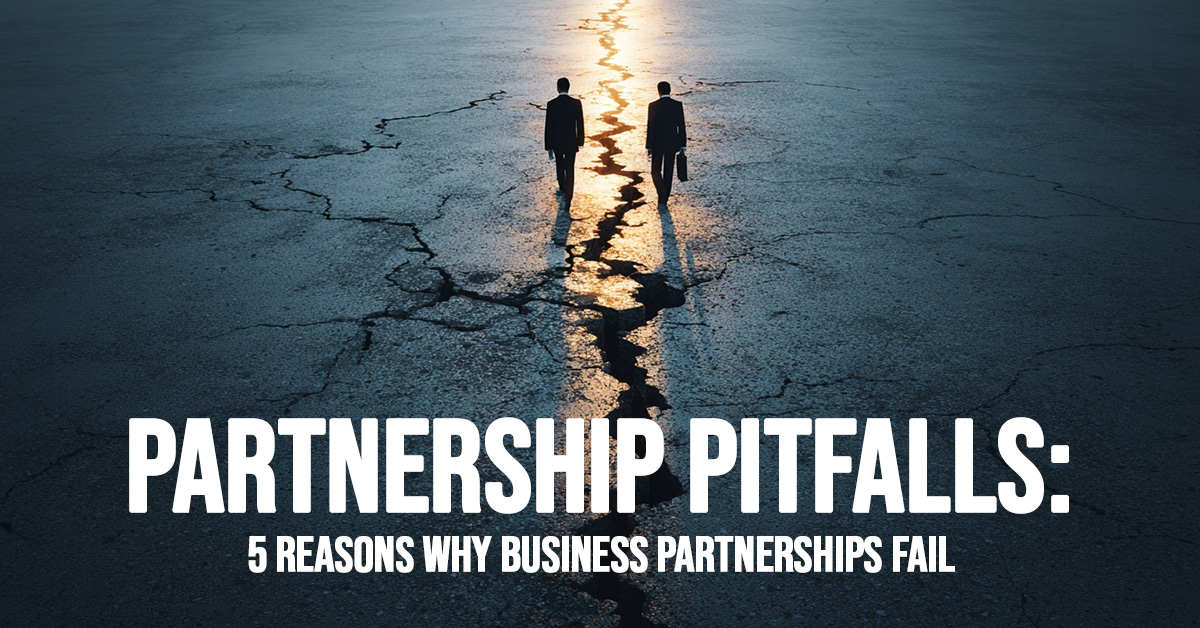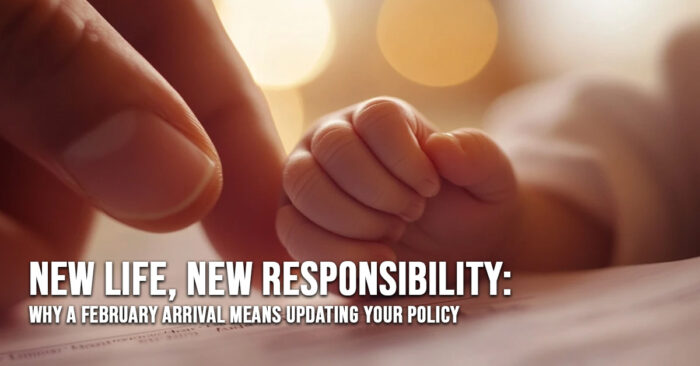Partnership Pitfalls: 5 Reasons Why Business Partnerships Fail

Partnership Pitfalls: 5 Reasons Why Business Partnerships Fail
When you decide to start a business, one of the most important decisions you’ll make is your business structure. A simple partnership, involving two people who believe they can work together to build a successful enterprise, is a popular choice. While partnerships can offer a sense of security and shared responsibility, they are also prone to a number of pitfalls that can lead to their failure. Understanding these common issues is crucial to building a strong, lasting partnership.
One major reason partnerships fail is a lack of diverse and complementary skills. If both partners have similar backgrounds and talents, their skill sets may not be broad enough to cover all the needs of the business. The most successful partnerships are often those where each person brings something unique and valuable to the table, with their strengths complementing their partner’s weaknesses.
Another common pitfall is unequal efforts. In many partnerships, a feeling can emerge that one person is working harder than the other. This can be a real issue or simply a matter of perception. To avoid this, it’s critical to clearly define and assign responsibilities so that each partner is held accountable for their specific duties. Without a clear division of labor, resentment can fester and ultimately doom the partnership.
A partnership can also fail when one partner gets distracted. Building a business requires immense commitment, long hours, and financial sacrifice. If one partner begins to seek outside projects to supplement their income or loses focus on the business’s core mission, it can signal the beginning of the end. A shared commitment to the business’s success is non-negotiable.
Personal or family stress can also be a significant factor. When you enter a partnership with someone, you are, to some extent, also entering into a relationship with their spouse and family. If you don’t get along with your potential partner’s family, it could be a sign of trouble ahead. Family issues and personal stress can bleed into the business, causing friction and disagreement.
Finally, partnerships often fail due to fundamental business differences. It’s vital that both partners are on the same page regarding core business goals and values. Before you ever sign a partnership agreement, you must have an open and honest conversation about things like how profits will be reinvested, the importance of growth and expansion, and your long-term goals for the company. Without a shared vision, a partnership is built on shaky ground.
Starting, building, and maintaining a successful business is a huge challenge. While having a business partner can be reassuring, make sure you are compatible and that each of you brings something unique to the table. A failed partnership can be a financial disaster and permanently damage relationships.
One thing you should be able to agree on is the importance of business insurance, including a life insurance policy for each partner. Our independent business insurance professionals can help. We will discuss your goals and potential risks, then design a business insurance plan especially for your organization. Contact us today to get started on protecting your business.
Do you have questions about your insurance? Find an insurance agent near you with our Agent Finder
Search All Blogs
Search All Blogs
Read More Blogs
March Potholes: Is Your Collision Coverage Ready for the “Crater Season”?
Road craters are appearing everywhere this March. Discover the insurance math behind pothole damage and how to keep your premiums from spiking.
Spring Skies and Structural Eyes: Why a March Roof Check is Your Best Insurance Policy
Don’t wait for a leak to check your roof. Learn how to spot late-winter damage and protect your home’s structure this March.
The Mystery of the Plastic Baby: A Guide to Mardi Gras and the King Cake
Why is there a baby in the cake? Discover the history and traditions of Mardi Gras 2026 and the delicious mystery of the King Cake.
Let the Good Times Roll—Safely: Mardi Gras Liability for Your Business
Hosting a Mardi Gras party this Tuesday? Make sure your business has the right event liability and liquor coverage before the beads start flying.
The Business “Prenup”: Why Business Partners Need Life Insurance in February
Love your business partner? Protect your company with a Life Insurance-funded Buy-Sell agreement to ensure the business survives the unexpected.
Heading South? Insuring Your Mid-Winter Break Road Trip in February
Driving to find some sun this week? Check your roadside assistance and rental car coverage before you leave the driveway.
Spring Dreams, Winter Schemes: Updating Your Insurance Before Your Spring Renovation
Planning a Spring kitchen remodel? Learn why you need to call your insurance agent before the contractors arrive to ensure your project is covered.
Shadow or Spring? The Quirky Science and Folklore of Groundhog Day 2026
Will he see his shadow? Dive into the history and humor of Groundhog Day 2026 and why we still trust a rodent with our weather forecasts.
Stocked for Love: Protecting High-Value Valentine’s Inventory with Business Insurance
Is your Valentine’s stock protected? Ensure your business insurance accounts for the massive inventory surge happening in early February.
New Life, New Responsibility: Why a February Arrival Means Updating Your Policy
Welcoming a new family member this February? It’s time to move life insurance to the top of your to-do list to ensure your child’s future is secure.









